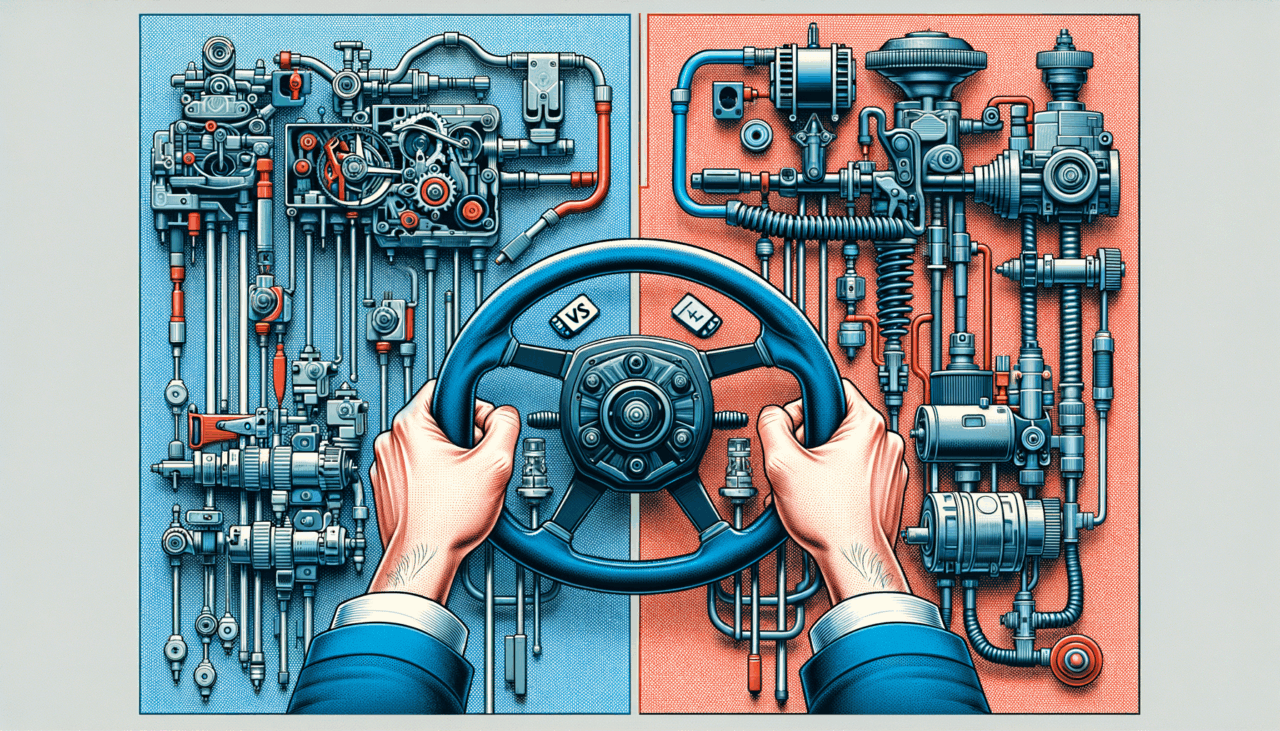In the realm of automotive technology, power steering systems have undergone significant evolution over the decades. Two primary systems dominate the landscape: electric power steering (EPS) and hydraulic power steering (HPS). Each comes with its own set of characteristics, benefits, and drawbacks. This article aims to delve into the nuances of both systems, helping you decide which might feel better for your driving experience.
The Evolution of Steering Systems
Imagine sitting in a cafe with two types of coffee in front of you. One is a classic espresso, robust and full-bodied, while the other is a modern cold brew, smooth and refreshing. Similarly, hydraulic and electric power steering systems offer distinct experiences, each catering to different tastes and driving styles.
Hydraulic Power Steering (HPS): The Classic Espresso
Characteristics:
-
Mechanical Connection: HPS relies on a hydraulic pump driven by the engine. It provides a consistent steering feel, often described as more connected to the road.
-
Weight and Feedback: Drivers often report that HPS offers a heavier steering wheel feel, which can translate to better feedback from the road.
-
Complexity and Maintenance: HPS systems are complex, with numerous components like hoses, pumps, and fluids, requiring regular maintenance to prevent leaks and ensure optimal performance.
-
Fuel Consumption: The constant operation of the hydraulic pump can slightly reduce fuel efficiency compared to EPS systems.
-
Reliability: Known for its durability, HPS has been a staple in vehicles for decades, favored by enthusiasts who appreciate its tactile feedback.
Electric Power Steering (EPS): The Modern Cold Brew
Characteristics:
-
Electronic Control: EPS uses an electric motor to assist steering, allowing for variable assistance levels based on speed and driving conditions.
-
Lightweight Feel: Often described as lighter and more precise, EPS can make maneuvering in tight spaces easier, especially at low speeds.
-
Efficiency: Without the need for a constantly running pump, EPS can improve fuel efficiency and reduce engine load.
-
Simplified Maintenance: With fewer mechanical parts, EPS generally requires less maintenance, although electronic components can be costly to repair if issues arise.
-
Customization: EPS systems can be tuned for different driving modes, offering versatility and adaptability for various driving preferences.
Comparative Table: Electric vs. Hydraulic Power Steering
| Feature | Hydraulic Power Steering (HPS) | Electric Power Steering (EPS) |
|---|---|---|
| Steering Feel | Heavier, more road feedback | Lighter, more precise |
| Complexity | More complex, more components | Simpler, fewer components |
| Maintenance | Requires regular maintenance | Minimal maintenance required |
| Fuel Efficiency | Slightly less efficient | More fuel-efficient |
| Reliability | Highly durable, proven history | Reliable, but costly repairs |
| Customization | Limited | Highly customizable |
| Popularity in Vehicles | Older models, enthusiast cars | Modern vehicles, diverse range |
Which Feels Better?
Deciding between electric and hydraulic power steering is akin to choosing between two types of art. One is classic, deeply textured, and rich with history, while the other is modern, streamlined, and innovative.
Enthusiasts and Traditionalists: If you crave a tactile connection to the road and value the established reliability of a traditional system, hydraulic power steering might align with your preferences. Its robust feedback and classic feel cater to those who appreciate a more engaged driving experience.
Modern Drivers and Efficiency Seekers: On the other hand, if you prioritize maneuverability, fuel efficiency, and the convenience of modern technology, electric power steering could be your ideal choice. Its adaptability and ease of use make it a popular option in contemporary vehicles.
Conclusion
In the end, the choice between electric and hydraulic power steering boils down to personal preference and driving style. Each system has its unique set of attributes that can significantly influence your driving experience. Whether you lean towards the classic embrace of hydraulic power or the sleek efficiency of electric power, the road ahead promises adventure, and your steering system is your guiding companion.
In the bustling world of automotive innovation, both systems continue to evolve, offering drivers a spectrum of choices that cater to diverse needs and desires. So, whether you’re sipping espresso or savoring a cold brew, rest assured that your steering system will deliver you safely to your destination, with a feel that’s just right for you.

Comments (0)
There are no comments here yet, you can be the first!